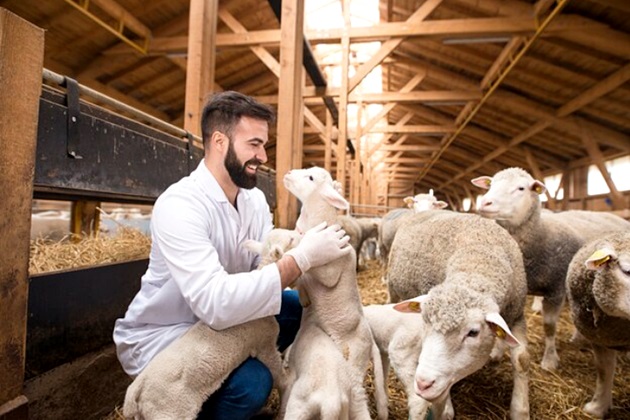1065

Eating habits could help address the climate crisis, notes the Animal Welfare Group, as reported by European Supermarket Magazine.
Consumer Behavior Needs to Change
Eating habits have the potential to address the climate crisis, and it is imperative to take action on food production and consumption, according to the animal welfare organization Compassion in World Farming.
Dr. Tracey Jones, Global Director of Food Business at Compassion in World Farming, stated: "Undeniably, the planet is at a breaking point, and our food system is failing. Addressing what we eat and how it's produced will help alleviate the pressures on our planet."
Ending factory farming would make an enormous difference, she added. It is one of the major contributors to greenhouse gas emissions, changes in land use, deforestation, and biodiversity loss—not to mention the immense suffering of millions of sentient beings.
Animal Farming
Intensive animal farming has been identified as a major contributor to the global climate, nature, and health emergency, according to researchers.
In 2016, the United Nations reported that unsustainable food production is a major factor in biodiversity loss and a polluter of air, freshwater, and oceans when not managed sustainably. It is also a significant source of soil degradation and greenhouse gas emissions.
How food is produced contributes to antimicrobial resistance, non-communicable diseases, as well as emerging and foodborne diseases, the report stated.
Approximately 84% of Europeans want farm animals to be better protected in their countries, according to the latest Eurobarometer survey, based on 26,376 interviews across all EU countries conducted between March 2 and March 26, 2023.
Furthermore, 84% of Europeans (89%) support the ban on individual cages for farm animals, and more than half of those surveyed (60%) are willing to pay more for products that promote welfare.
Rich countries are found to engage in excessive consumption of animal products, according to a recent report by Compassion in World Farming, titled "More Money, More Meat."
The report outlined how much these countries need to reduce consumption to meet the EAT-Lancet Planetary Health Diet goal of obtaining 12% of their calories from meat, fish, dairy, and eggs.
Philip Lymbery, the global CEO of Compassion in World Farming, added: "In the richest countries, we are quite literally eating our way to our own demise. Our insatiable appetite for cheap meat and other animal-derived foods harms our health, inflicts immense cruelty on animals, and kills our planet."
Other Findings
The report showed that the largest food waste is feeding industrial animals with crops suitable for human consumption.
Intensive animal farming consumes cereals, soy, and palm, inefficiently converting them into meat, milk, and eggs, with protein conversion ranging from 4% for beef to 25% for eggs.
Moreover, almost a fifth of the total global wild fish catch is processed into fishmeal and fish oil, the majority of which is used to feed farmed fish.
Lymbery stated: "The only way to secure our future is to move away from industrial farming and create a global food system that benefits animals, people, and our planet—reducing excessive consumption of animal-derived food is a vital part of this."
In separate research by YouGov, commissioned by Compassion in World Farming, 31% of UK residents said that retailers and/or food producers should help society reduce meat consumption through innovation, including creating or improving plant-based alternatives.
More than a fifth (22%) said businesses could contribute to reducing meat supply by controlling portions or the quantity of meat introduced into products.
The study included approximately 14,147 adults aged 18 and over from 12 markets who shared their opinions on animal-derived food consumption.




